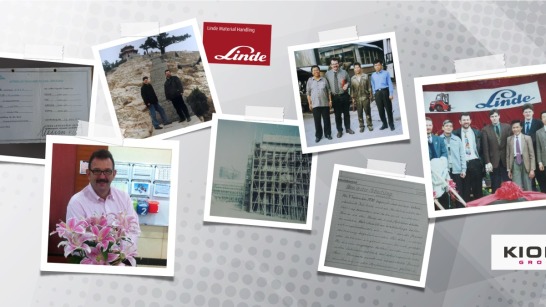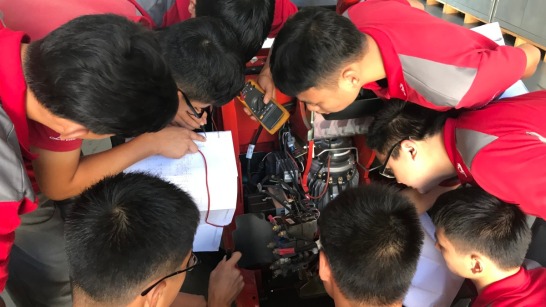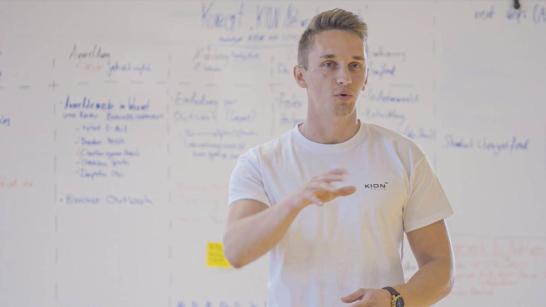Technical expertise informs capital investment
One morning a few years later, he had another experience that would shape his future, as on his way into the office he watched ‘his’ beloved Milwaukee CNC milling machines being scrapped. “At that moment, I thought: You’re not an electrician any more. Now you’re doing something else. You’ve got to make sure that you buy the right machines.” In his mind, it made sense to purchase the training at the same time as the machines. “After all, there’s no point in buying a fancy car if you don’t have a license.” He quickly made up his mind to change direction and move into capital investment planning. But in order to do so, Fäth had to again acquire new knowledge. So he took additional courses in the evenings and at weekends, among other things to become an electrical engineer in the field of drive technology. At the same time, Linde Aschaffenburg’s parent company, Linde AG, underwent a period of expansion from the mid-1980s onward, purchasing new truck production plants across Europe. As part of the team that provided support for the takeover of new plants, Fäth was responsible for the sites’ technical equipment.
A small souvenir with a big impact
Fäth had wanted to visit his brother, who was working in Beijing, for some time, and an international tool fair in April 1993 presented the perfect opportunity. At the fair, he spotted Chinese-language brochures of some German manufacturers and took them as a souvenir. Back in Germany, the brochures landed on Fäth’s desk and were forgotten for the time being, until a Chinese delegation visited the Linde Aschaffenburg plant in June 1993. “Suddenly, one of the visitors stopped at my desk, leafed through the brochures, greeted me briefly and disappeared again,” Fäth remembers. A few days later, he was called to the CEO’s office, where he learned to his surprise that the Chinese delegation had decided on a joint venture with Linde AG and wanted to set up a plant in China. And there was a further surprise in store: The head of the delegation, Director Xin, specifically asked for Fäth to work on delivering the project. As it turned out later, this Xin was the very same person who had leafed through the brochures on his desk. That November, Fäth traveled to China in a team of four, and the planning of the Linde production plant in Xiamen began to take shape.
A German-Chinese success story
Fäth was a key member of the project team for six years. “It was a whole new world. None of us spoke Chinese or had experience with projects of this magnitude in Asia,” says Fäth looking back. And the language barrier was not the only challenge, as few of the processes he was used to from Europe could be implemented like-for-like in Asia. But with the help of his "mentor" Zhu Lin and the team, Fäth always found a solution. On September 1, 1996, the first Linde truck ‘made in China’ rolled off the assembly line.
That should have been the end of his work in Xiamen. But here, too, it turned out that a perfectly equipped plant without qualified employees was like having a car without a license. So Fäth expanded the factory to include a training center and introduced dual vocational training. This was a first in China, where employees had either practical or theoretical experience, but never both. This all changed with the new training concept, and thanks to its skilled workforce, Linde (China) became the largest foreign supplier of material handling solutions in China at the time.


